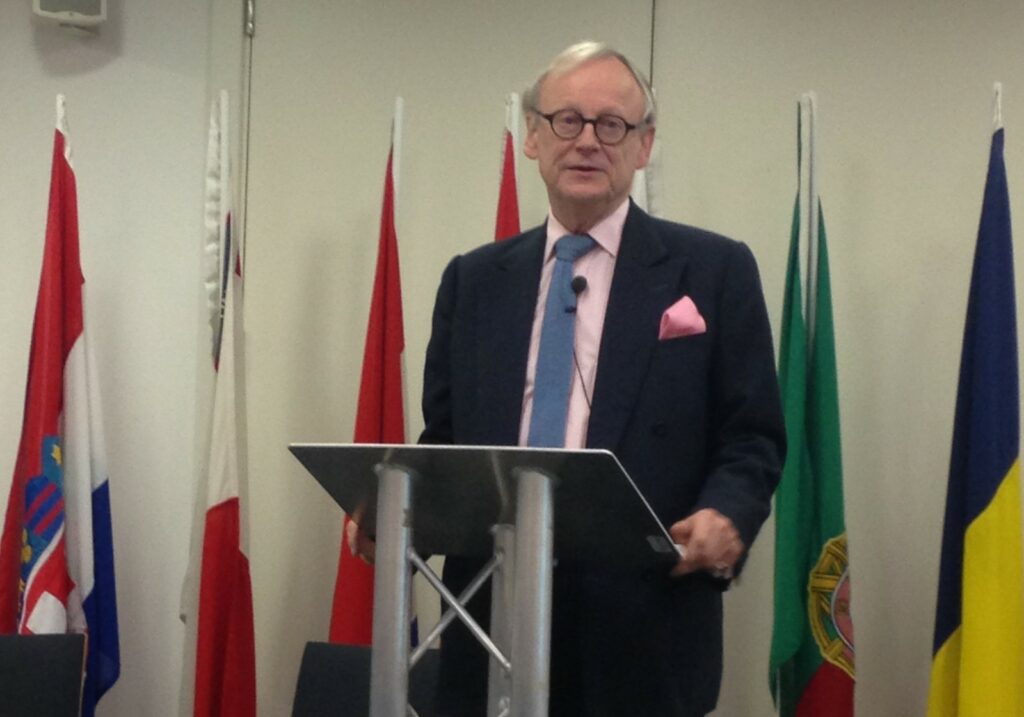Lord Deben has claimed that wider use of renewable technologies may not be “the right thing” to meet carbon reduction targets.
Delivering a keynote speech at an Institute for Public Policy Research (IPPR) event discussing the implementation of Europe’s Energy Union, the chair of the Committee on Climate Change (CCC) claimed that his job was to measure Government performance on carbon reduction and monitor budget use, not instruct government on policy.
Deben said: “I am unashamedly a believer that, in the world we look at at the moment, it is quite important to use a lot of renewables but I do not have a theological view that renewables are the right thing. They are part of the pattern.
“My job is to measure what the government has done, not to take sides on particular ways of doing it.”
Following revelations last week that the government is on course to miss its 2020 carbon reduction targets set by the EU, the former secretary of state for environment suggested that this was not of concern to the CCC, which is instead focused on the long-term carbon reduction targets laid out in the UK’s Climate Change Act.
“I don’t mind whether we meet renewables targets in so far as we’ve signed up to them. What I mind is do we cut our emissions on a cost effective basis which leads to cutting our emissions by 80% by 2050, and do we do it on a trajectory which is actually doing to get there rather than a trajectory which happens to be convenient to us? I think that is more central and more important than anything else,” he added.
The CCC is due to publish its fifth carbon budget later this month, however recent comments from Lord Deben outside of today’s event have hinted that demand side reduction is considered a more valuable method of achieving carbon reductions.
Despite concerns that fines are likely to be imposed on the UK by the EU Commission if renewable targets are not met, other speakers at the event claimed it was unlikely that these targets would be met.
Katherine Mercer, director of EU public affairs at British Gas parent company Centrica, said: “I think in relation to the renewable energy target I think it was always an uphill struggle to meet by 2020 so I don’t think it’s a surprise that we’re off target in meeting that at the moment.
“I think the government is having to make some difficult choices at the moment and they are very much focused on affordability and the inevitable consequence of renewables is that this led to increasing consumer bills.”
There was also doubt that the UK would reach its longer-term goal of a 27% mix of renewable energy by 2030. Stephen Tindale, co-founder of website Climate Answers, said of the aim: “I would give up now. I think it’s a meaningless target and it’s very unambitious anyway.”
Ingrid Holmes, director at E3G – Third Generation Environmentalism, claimed that the idea of a target was of more value to countries seeking investment rather than the carbon saving agenda. She said: “From a strictly legal perspective what we’ve got with the EU binding target for renewables is unenforceable so not really binding at all in the normal sense.
“But while it may not be enforceable, it does have the symbolic value of the law. Targets help countries compete for the attention of investors so it follows that a binding target will send a stronger signal than a non-binding one.”
This follows a recent publication from ‘Big Four’ consultancy EY which found that despite its national targets, the UK dropped out of the top ten places to invest in renewables, with policy uncertainty cited as the main cause.






